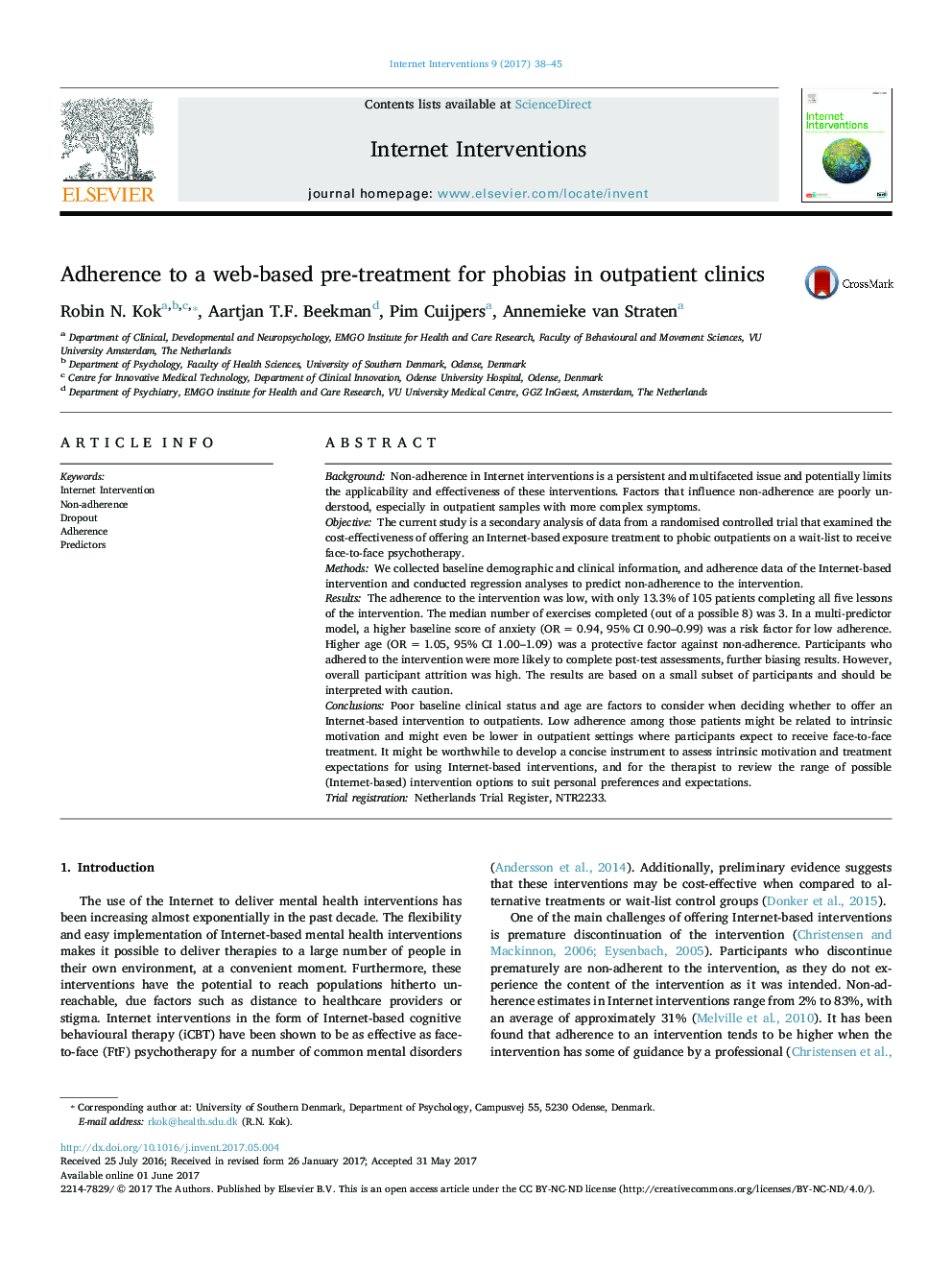| کد مقاله | کد نشریه | سال انتشار | مقاله انگلیسی | نسخه تمام متن |
|---|---|---|---|---|
| 4972729 | 1451167 | 2017 | 8 صفحه PDF | دانلود رایگان |
- Non-adherence to Internet-based interventions is still a poorly understood topic.
- In this outpatient clinic trial, initial uptake was good but few participants finished all five weeks of the intervention.
- Worse baseline clinical status was associated with higher non-adherence in this outpatient sample.
- Adherent patients were also more likely to complete post-treatment assessments.
- Assessment of intrinsic motivation, treatment expectations and patient preferences are suggestions to reduce non-adherence.
BackgroundNon-adherence in Internet interventions is a persistent and multifaceted issue and potentially limits the applicability and effectiveness of these interventions. Factors that influence non-adherence are poorly understood, especially in outpatient samples with more complex symptoms.ObjectiveThe current study is a secondary analysis of data from a randomised controlled trial that examined the cost-effectiveness of offering an Internet-based exposure treatment to phobic outpatients on a wait-list to receive face-to-face psychotherapy.MethodsWe collected baseline demographic and clinical information, and adherence data of the Internet-based intervention and conducted regression analyses to predict non-adherence to the intervention.ResultsThe adherence to the intervention was low, with only 13.3% of 105 patients completing all five lessons of the intervention. The median number of exercises completed (out of a possible 8) was 3. In a multi-predictor model, a higher baseline score of anxiety (ORÂ =Â 0.94, 95% CI 0.90-0.99) was a risk factor for low adherence. Higher age (ORÂ =Â 1.05, 95% CI 1.00-1.09) was a protective factor against non-adherence. Participants who adhered to the intervention were more likely to complete post-test assessments, further biasing results. However, overall participant attrition was high. The results are based on a small subset of participants and should be interpreted with caution.ConclusionsPoor baseline clinical status and age are factors to consider when deciding whether to offer an Internet-based intervention to outpatients. Low adherence among those patients might be related to intrinsic motivation and might even be lower in outpatient settings where participants expect to receive face-to-face treatment. It might be worthwhile to develop a concise instrument to assess intrinsic motivation and treatment expectations for using Internet-based interventions, and for the therapist to review the range of possible (Internet-based) intervention options to suit personal preferences and expectations.Trial registrationNetherlands Trial Register, NTR2233.
Journal: Internet Interventions - Volume 9, September 2017, Pages 38-45
